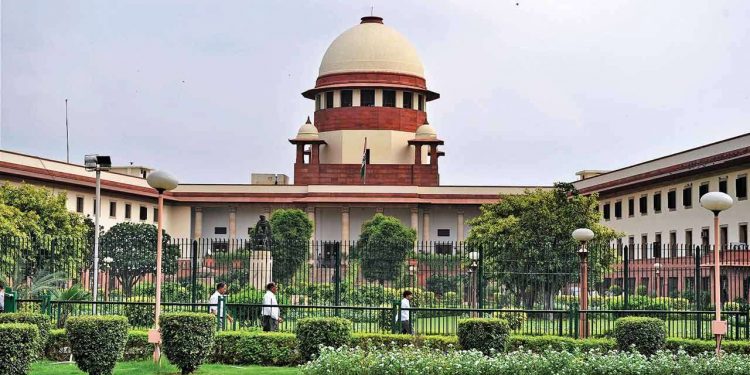New Delhi: The Supreme Court-appointed three-member committee of agricultural economists has submitted its report to the top court on the three contentious farm laws in a sealed cover.
The committee comprises four members: Bhupinder Singh Mann, National President, Bharatiya Kisan Union and All India Kisan Coordination Committee; Dr. Parmod Kumar Joshi, Agricultural Economist, Director for South Asia, International Food Policy Research Institute; Ashok Gulati, Agricultural Economist and Former Chairman of the Commission for Agricultural Costs and Prices; and Anil Ghanwat, President, Shetkari Sanghatana. Mann resigned later. The committee had also sought views, and suggestions of the general public through a public notice, which was published in major newspapers.
Speaking to IANS, Anil Ghanvat confirmed that the committee has submitted the report, but declined to divulge any details on the content. He added the contents will not be public till Chief Justice S.A. Bobde takes it up for hearing and discussion. The hearing in the matter is expected after April 5 when the court reopens after Holi vacation.
January 12, this year, the Supreme Court had said the extraordinary order of stay of implementation of the farm laws will encourage farmers’ bodies to convince their members to get back to their livelihood, both in order to protect their own lives and health and in order to protect the lives and properties of others. “We are of the view that the constitution of a committee of experts in the field of agriculture to negotiate between the farmers’ bodies and the government of India may create a congenial atmosphere,” the top court had said in its order.
The committee held deliberations with several farmer organisations on the three farm laws for two months. The committee had spoken to many farmer organisations besides other stakeholders like officials from APMC.
Several farmer unions have been agitating at various Delhi borders since the end of November, and they have declined to hold discussions with the top court appointed committee. The farmer unions have consistently demanded the scrapping of the three farm laws, and have informed the government that would not settle for anything less.
January 12, the Supreme Court stayed the implementation of three farm laws: 1) Farmers’ Produce Trade and Commerce (Promotion and Facilitation) Act, 2020; (2) Essential Commodities (Amendment) Act, 2020; and (3) Farmers (Empowerment and Protection) Agreement on Price Assurance and Farm Services Act, 2020.
Justifying the stay on implementation of farm laws, the top court had said: “We deem it fit to pass the following interim order, with the hope and expectation that both parties will take this in the right spirit and attempt to arrive at a fair, equitable and just solution to the problems.”
IANS







































